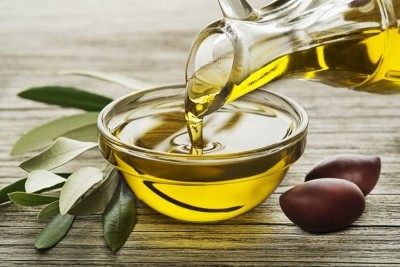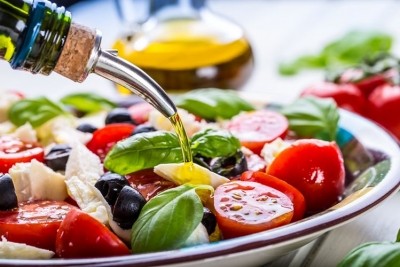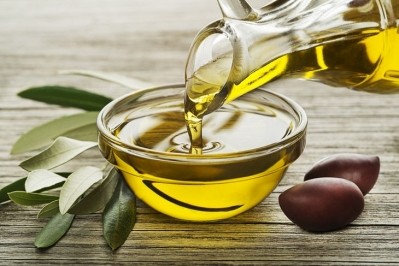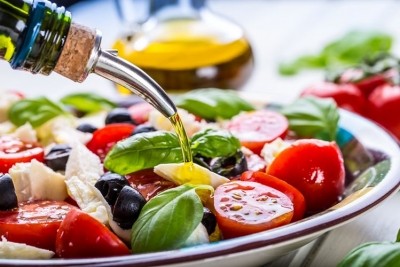‘Chaos’ looms if olive oil, cheese, hit with retaliatory tariffs over Airbus dispute, warn US importers
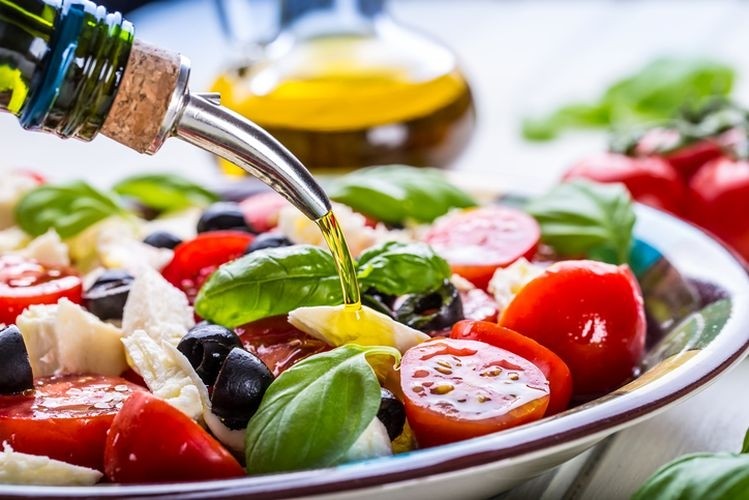
Olive oil, olives, Stilton, Cheddar, Roquefort and other specialty cheeses, seafood, jam, and fruit juice are on a preliminary list of EU-made goods subject to retaliatory tariffs proposed by the US to counter adverse effects of subsidies from EU member states to Airbus - which they claim have harmed US civil aircraft makers such as Boeing.
The US trade representative (USTR) estimates the harm from the EU subsidies amounts to $11bn in trade each year, a figure subject to an arbitration at the World Trade Organization (WTO), which is expected to issue a report on the matter this summer. The USTR will then release a final product list “covering a level of trade commensurate with the adverse effects determined to exist.” Around a month later, the tariffs - expect to be 100%+ - could go into effect.
‘A misguided effort to right a wrong in an entirely different industry…’
While the tariffs are designed to punish the EU for subsidizing makers of civil aircraft, they are paid by US importers and will be passed onto US consumers, causing a host of players in entirely unrelated industries to suffer, argued dairy giant Friesland Campina in a public comment.
“To jeopardize [EU dairy farmers’] livelihood by artificially inflating the costs of their goods to US consumers is a misguided effort to right a wrong in an entirely different industry.”
The tariffs, which will also impact imports of sweet biscuits from the EU, would “make these products unaffordable for US consumers,” warned Mondelēz International, which owns the EU-manufactured LU brand of biscuits, which is also sold in the US.
Campbell Soup, in turn, warned that a tariff on Danish butter cookies would be devastating for its subsidiary Kelsen Group, “which accounts for nearly all biscuits entering from Denmark” and would be a “major boon to Chinese-origin ‘butter flavored’ cookies that directly compete with Kelsen’s Danish butter cookies.”
What goods could be impacted?
A preliminary list of EU-made goods subject to retaliatory tariffs proposed by the US trade representative (USTR) in April includes:
- Olive oil
- Olives
- Frozen crabmeat
- Salmon
- Butter
- Yogurt
- Gouda cheese
- Edam cheese
- Roquefort cheese
- Cheddar cheese
- Stilton cheese
- Citrus fruits, fruit juice,
- Sparkling wine, liquers
- Lobster
Schuman Cheese: You can’t just replace specialty products overnight
Most imported cheeses “are of a specialty nature and not easily replaced by domestic US production, especially sheep’s milk cheeses,” added Schuman Cheese, which argued there is not sufficient available capacity in the US or other locations to produce them:
“Imposing a 100% ad valorem duty on these cheeses will destroy the US commercial market which companies like ASI have spent decades and millions of dollars cultivating relationships, constructing packaging operations, and building channels of distribution.”
North American Olive Oil Association: 'It's going to throw things into chaos'
However, the biggest impact will be on the US olive oil industry, which remains dominated by imported EU products, claimed the North American Olive Oil Association (NAOOA).
While the US industry has grown significantly in recent years, more than two thirds of the world’s olive oil production is still based in Europe (an estimated 2.3millon metric tons out of an estimated 3.2 million metric tons for 2019 according to International Olive Council data*).
And while tariffs on EU olive oil might boost domestic producers, which produce around 10,000 MT/year, less than 1% of global production and less than 5% of US consumption (which is estimated at around 316,000 MT for 2019), California's olive growers will not have the bandwidth to pick up the slack, claimed NAOOA executive director Joseph R. Profaci.
In the short term, at least, the move would benefit producers in other non EU countries who are able to increase production more cheaply and rapidly, he predicted.
“It's going to throw things into chaos,” he told FoodNavigator-USA, noting that producers can't just increase supplies by turning on a tap. “We're not just talking about prices doubling, we're talking about huge shortages."
While tariffs of this magnitude would have to be passed onto consumers, they are initially paid by importers at the point of entry into the country, and many smaller companies do not have the cashflow to pay for them, so would not be able to secure product at all, he predicted.
‘This is tantamount to a tax on Americans' health’
Moreover, a tariff on European olive oils – "which are the only products on the proposed list that are recommended by doctors - is tantamount to a tax on Americans' health,” claimed Profaci, who said consumers perceive olive oil to be the healthiest oil, but will be forced to switch to cheaper, less healthy oils if prices go up even slightly, never mind double.
“Annual olive oil sales approximate a billion dollars," said Profaci, who has set up a petition urging olive oil fans to get behind calls for the USTR to remove olive oil from the proposed list of tariffs.
"So, it should come as no surprise that a sizeable swath of American industry will also be substantially harmed by such a tariff. Many companies and their employees are dependent on a continuous dependable supply of affordable European olive oils both in bulk and in retail packaging.
“This includes companies that import, sell and distribute olive oils, and supermarkets, boutique olive oil shops and restaurants, as well as the port workers, truckers, and warehouses in the logistics chain of supply.”
While you can make great olive oil in North Africa and Latin America as well as Spain, Italy and Greece, he acknowledged, the varieties of olives grown in different parts of the world vary, and the oils are not all the same.
"It's like wine. All these products have a different flavor."
American Olive Oil Producers Association: We need a more level playing field
In its public comments, the American Olive Oil Producers Association (AOOPA) did not support the tariffs, but did not denounce them either, adding that, “Although the US only produces approximately 5% of what is domestically consumed, if policies were to be in place that support a level playing field for all producers, then the resulting olive oil prices that reflect the true production cost and value of the health benefits to consumers would encourage additional investment by US and other new world olive oil producers to increase production.”
The AOOPA also cited recent “tremendous growth” of olive oil production in Australia, South America, and North Africa, “with countries such as Australia almost doubling their production and Chile almost tripling production over the last ten years.”
“Our ultimate goal is to reach an agreement with the EU to end all WTO-inconsistent subsidies to large civil aircraft.
"When the EU ends these harmful subsidies, the additional US duties imposed in response can be lifted.”
US Trade Representative Robert Lighthizer (Read more HERE)
NMPF: Tariffs on EU dairy ‘entirely warranted’
Amid the chorus of disapproval from firms likely to be directly hit, however, there were some voices of support for the tariffs in the food industry, with the National Milk Producers Federation (which represents US dairy farmers), arguing that including EU cheeses, yogurt, and butter on this list “is entirely warranted.”
Going on to encourage the USTR to add additional EU dairy-related tariff lines, NMPF president Jim Mulhern argued that doing so “would bring increased attention to the gross inequities that currently define our dairy trading relationship.”
He went on to blame a “complex web of EU tariffs and nontariff obstacles [such as the EU’s protected geographic indication requirements blocking manufacturers from selling cheese such as Parmigiano Reggiano and Feta in the EU unless they are manufactured in Parma or Greece] for the current $1.6bn dairy trade deficit with Europe.
“Simply put, we are largely being blocked from the EU market despite being a trusted and proven dairy supplier to the rest of the world.”
*According to data from the International Olive Council, it is estimated that the world's olive oil production will be 3,203,000 metric tons in 2019. Of this, European olive oil will account for 2,296,000 metric tons (72%). Of the 908,000 metric tons of production outside of the EU, most will come from Morocco, Turkey, Tunisia, Algeria and Syria, totaling 690,000 metric tons. Beyond these five countries, other country will account for more than 1% of production. US production, estimated at around 10,000 MT, would be 0.3% of the world total.
“We are concerned about the collateral damage the proposed tariffs could have on our companies and US consumers. Inclusion of [food and beverage] products and ingredients in the final list would have a tremendous negative impact on American consumers, who would be disproportionately harmed in what is principally a dispute over civil aircraft.”
Grocery Manufacturers Association
“The proposed increased duties on specialty food products will have an adverse effect on US small food businesses, decreasing sales and adversely affecting employment. In addition, the EU will respond to the US action by imposing tariffs on US exports, including specialty foods.”
The Specialty Food Association:

